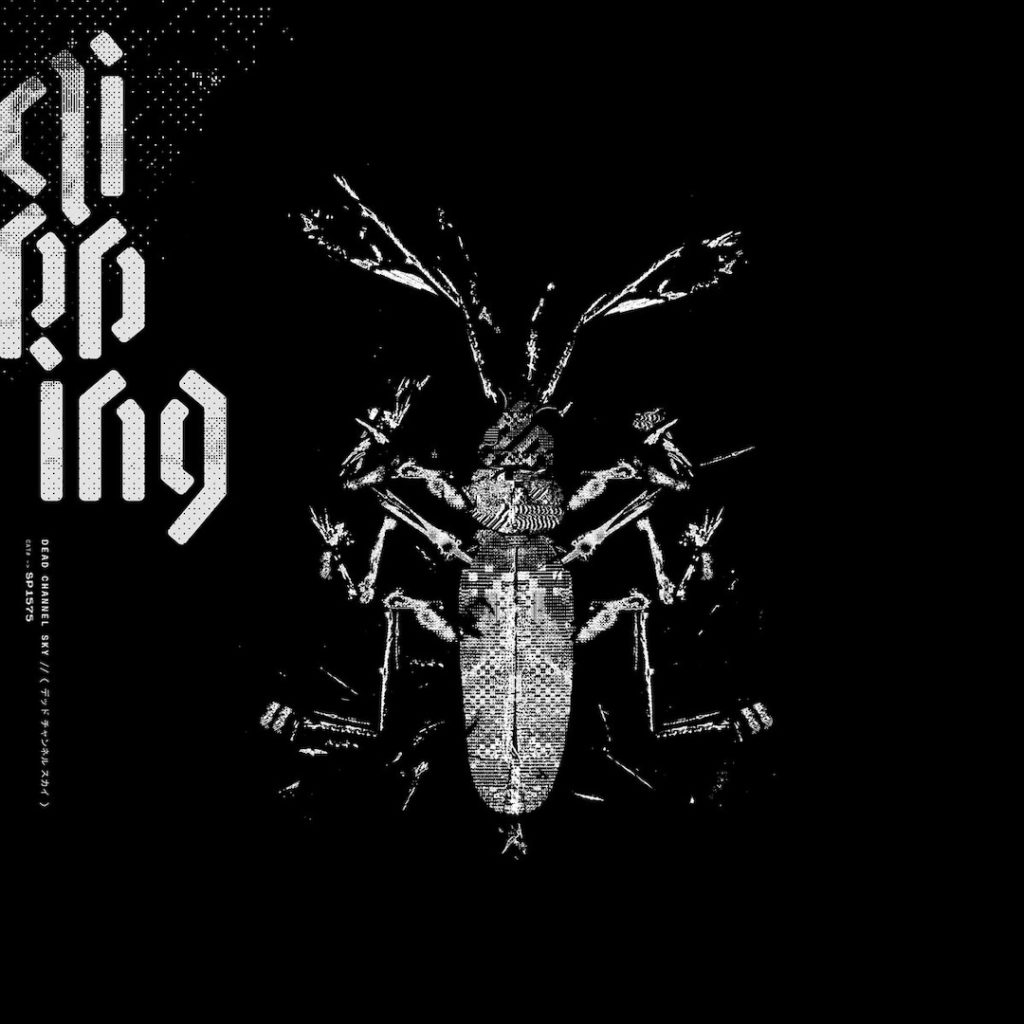
It’s the second track off Dead Channel Sky, the latest album from hip-hop trio clipping., that hooked me into the album. “Dominator” begins with a snippet of Human Resource’s early ‘90s banger of the same name, the line “I’m the one and only” pitched up and stuttering towards a collision with rapper Daveed Diggs, who drops a quote from “Bring the Noise,” the Public Enemy classic, “Once again back it’s the incredible.” The sound is bombastic, in the way that the old rave anthems were, and clipping. keeps up the big, boisterous vibe as “Dominator” slides into “Change the Channel,” which twists towards late ‘90s electronic tastes, think “Firestarter”-era Prodigy-meets-Chemical Brothers.
Those references are all songs and artists that I listened to a lot in the 1990s, but fairly infrequently since then, so they’re locked in my mind as being of that time, at least until now. Diggs’ lyrics reference today’s tech-dominated shitshow of a world and, on both “Dominator” and “Change the Channel,” the rave-meets-Big Beat sound of the end of the 20th century does a fantastic job of encapsulating the frustration of the 21st. Maybe because I happened to be listening while trying to catch up on another day’s worth bad news, the songs’ energy matched how I felt.
There’s a good amount of press out now regarding Dead Channel Sky, the best of which is the interview with clipping. that recently ran in Paste, where the members talk extensively about their influences for the album. I recommend reading that article for the album’s background.
What resonated with me most while listening to Dead Channel Sky is how Diggs, William Hutson and Jonathan Snipes expand on the theme of dystopia with such a wide breadth of music and cultural touchstones. It’s a varied album, with the beats ranging from minimalist early ‘80s hip-hop bordering on electro to drum and bass. The range of guest musicians also reflects that kind of eclecticism. Nels Cline, the prolific and experimental L.A. guitarist, plays on “Malleus” and that seems like a nod to clipping.’s own roots in our local DIY scene. Meanwhile, rapper Aesop Rock, best known amongst late ‘90s/early ‘00s underground hip-hop fans, turns up on “Welcome Home Warrior.” Clipping.’s labelmates Cartel Madras join in for a collab on “Mirrorshades pt. 2,” which is the clubbiest song on the album with its house-influenced rhythm.
Lyrically, Diggs plays with the images of our techno-present, like OS, avatars and code, to build up this feeling of dystopian dread. It all comes together on the album’s final track, “Ask What Happened,” where he references historical events, from the Vietnam War to the Iran-Contra scandal and Exxon Valdez spill. In the song’s chorus, the past and the present converge with lines like “history and future belong to the one percent, though” and “trickle-down Monopoly money is just a game, no.” Verse by verse, the song leads to today, where the line between the virtual world and the physical one barely exists and the future-present hellscape feels inescapable.
Overall, Dead Channel Sky is a heavy album, but there’s a sense of relief in it as well. At the very least, there’s some comfort to be found in an album that acknowledges what a mess of a world this is.
Liz O. is an L.A.-based writer and DJ. Read her recently published work and check out her upcoming gigs or listen to the latest Beatique Mix. Follow on Instagram or Bluesky for more updates.
Keep reading:
